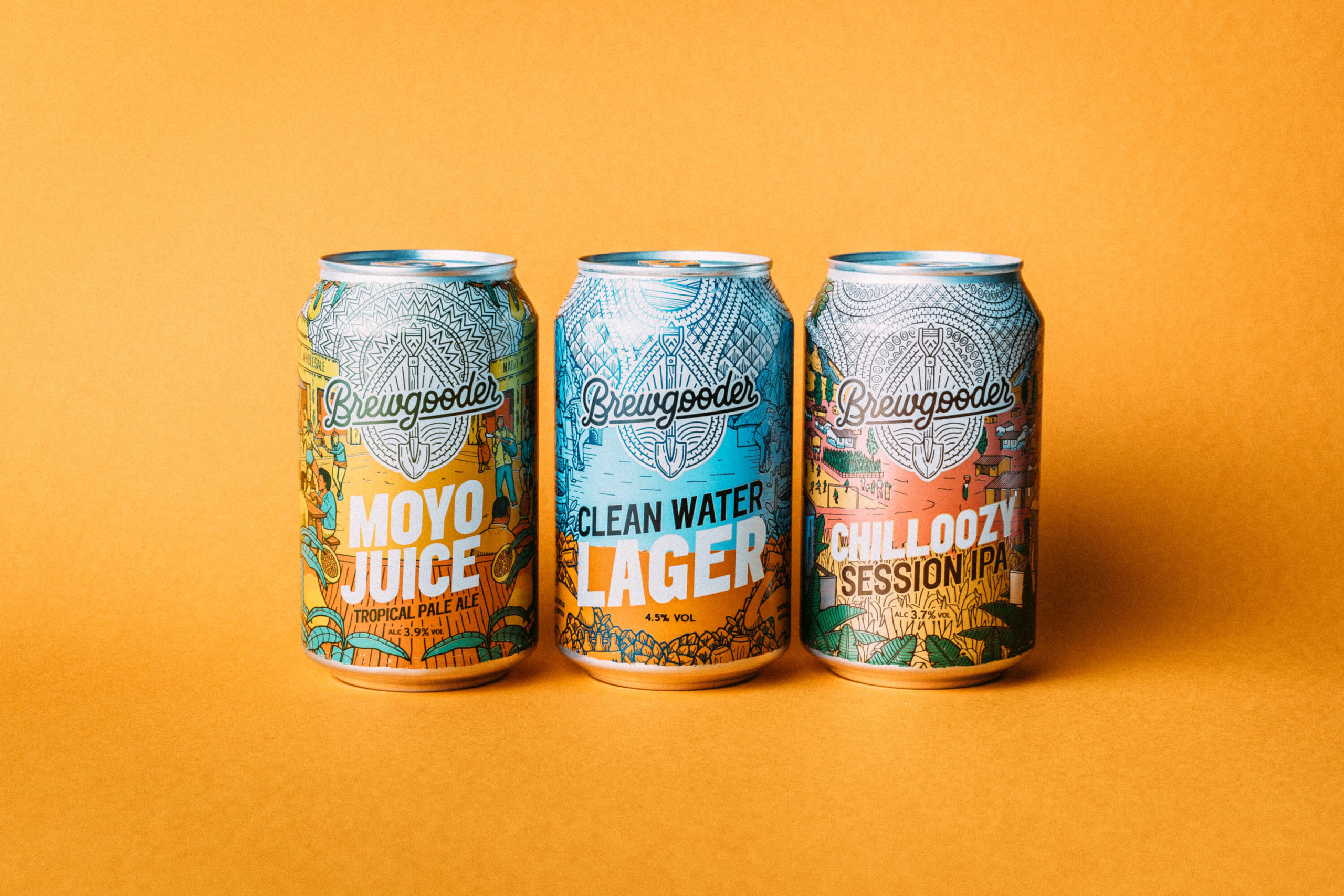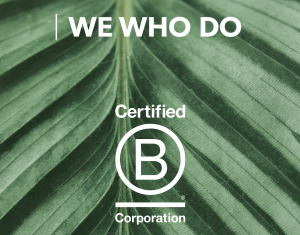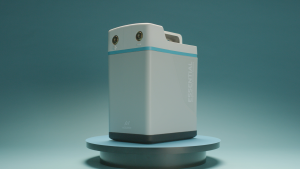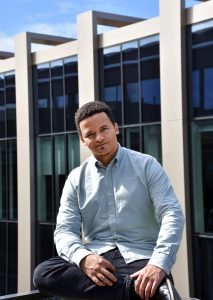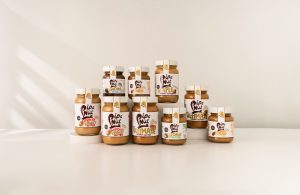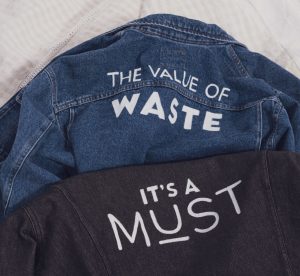Where did the idea for Brewgooder come from?
James: The idea for Brewgooder started with my colleague and co-founder, Alan. He had visited Nepal and gotten really ill from a lack of clean drinking water. Not only did this give him a newfound appreciation for what some people have to go through on a daily basis, but it also reminded him how lucky he was to be able to come back and be treated by the wonderful NHS. However, the sad reality is that almost a billion people don’t have that kind of privilege and Alan felt passionately about changing that – and that’s where the idea for Brewgooder came to life.
We decided that beer was the ‘vehicle for change’ for several reasons. First, we both had a passion for drinking it(!) – but more than that, we recognised the social power inherent in beer: how it brought people together and existed at the heart of communities around the world. We became obsessed with how this power could be harnessed for good and how that could be an incredible product and offering. So, the initial mission was set to positively impact the lives of 1 million people with clean drinking water, using a contribution from each beer sold to support clean water projects around the world.
I’m of the view that most people want to do good, but we are often caught up with the idea that charity or making an impact involves sacrifice. We wanted to try and show that doing good doesn’t require that sacrifice or even necessarily a change of behaviour. That prevention of any sacrifice is also important on our side in terms of ensuring the quality of our beer doesn’t suffer, and is as good as our efforts are in turning drinkers into philanthropists.
What has Brewgooder been up to in the past few months?
James: As with most companies, it’s been a tough year. Back in March 2020 we had our first ever global gathering campaign due to launch, with over 150 breweries gathering together to raise funds that would have impacted upwards of 150,000 people. These breweries had planned loads of in-person events, most of which were unfortunately cancelled.
When lockdown first hit, we also lost 60% of sales channels, and only had a small core team to manage it. We knew that if we were going to survive, we had to adapt. However, we wanted to help however we could, and despite lacking the resource to produce sanitiser or anything directly useful in combating the virus, we recognised the need for acts of kindness and goodwill and how our ethos spoke to this.
So…we launched an initiative called ‘One on Us’, where the public could pay towards a 4-pack of beer and a message that could be claimed at random by an NHS employee. Every £6 donation covered our cost incurred to brew, pack and deliver a 4 pack of beer, or Karma Cola, with a message included, to an NHS employee in the UK. We were able to deliver 28,000 beers to NHS workers across the UK, a figure we are really proud of.
What are you guys working on at the moment?
James: Lockdown has really made us stop and think. Like a lot of companies, we had the blinkers on to ‘just keep going’: we didn’t have time to strategically think about what direction we were going, or what kind of brand we wanted to be and ultimately stand up for.
Over the past few years, we’ve achieved a lot: from being stocked in national supermarkets for the first time, to delivering the impact we had done up to that point. However we also recognised that our business model and brand had evolved and so to have time to actually stop and think, and implement some much needed changes has been a great opportunity.
We are refreshing the look and feel of Brewgooder, which will go live in March and I am excited to see how we will grow and develop in the coming year.
Where do you see Brewgooder in 10 years time?
James: I’d like Brewgooder to continue being what it has now become: a brand that harnesses the power of beer (and its drinkers) to deliver sizeable people-positive impacts around the world. And if we can scale the extent to which we do this both in terms of beers sold around the world, and impact delivered, I think we can be really proud of that.
We are currently found in Co-op, Aldi and Asda stores, and a key goal would be to expand our brand and our purpose to reach many more drinkers across the UK and eventually the world.
This article has been posted as part of the Sustainable Start-up Series run by WeWhoDo: building a community of world-leading experts to help sustainable businesses thrive. For more information about Brewgooder click here.

